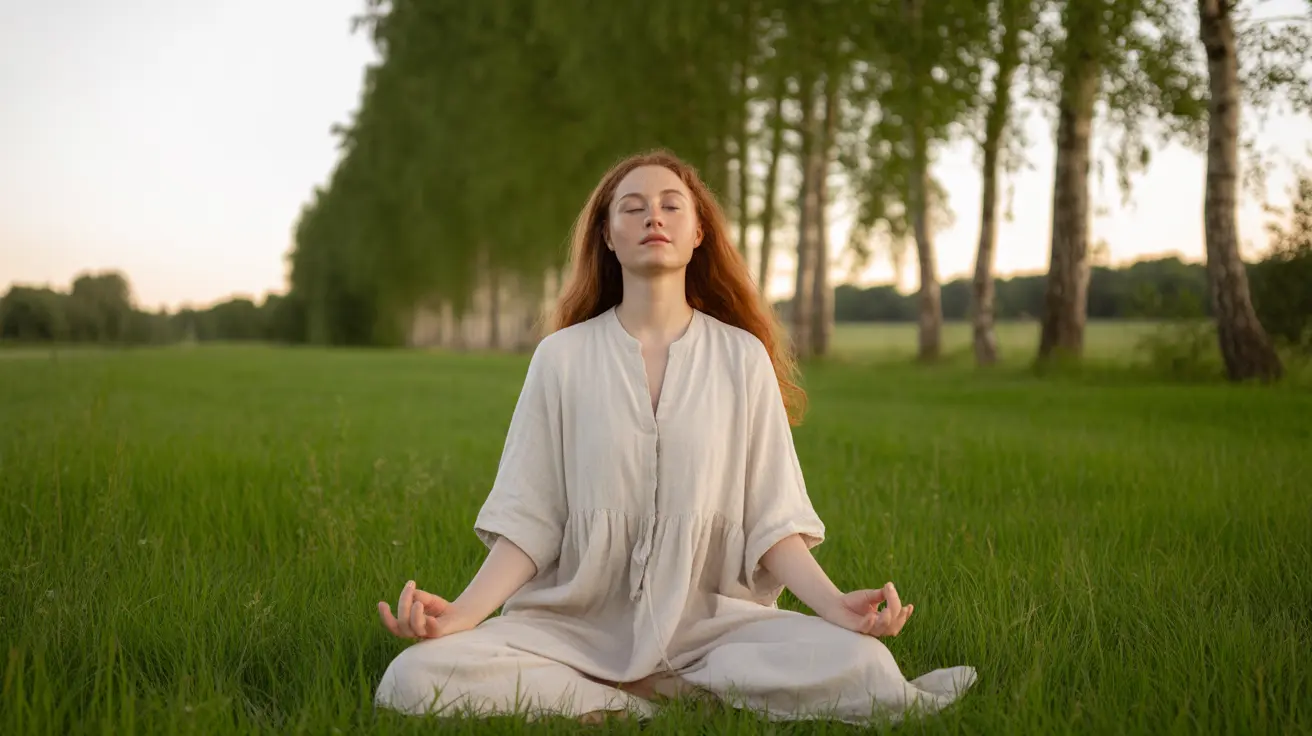Exploring the various types of meditation can open doors to enhanced mental clarity, emotional balance, and overall well-being. Whether you're new to meditation or looking to expand your practice, understanding the distinct characteristics and benefits of different meditation styles can help you find the approach that resonates most with your needs and goals.
In this comprehensive guide, we'll explore the most effective types of meditation, their unique benefits, and how to choose the right practice for your personal journey toward mindfulness and inner peace.
Understanding Mindfulness vs. Transcendental Meditation
Mindfulness meditation and transcendental meditation represent two distinct approaches to mental wellness. Mindfulness meditation involves present-moment awareness of thoughts, feelings, and sensations without judgment. Practitioners observe their experiences while maintaining gentle focus on their breath or physical sensations.
In contrast, transcendental meditation uses silent mantra repetition to achieve a state of deep relaxation and consciousness. This technique typically requires learning from a certified instructor and practicing twice daily for 20 minutes.
The Power of Loving-Kindness Meditation
Loving-kindness meditation, also known as Metta meditation, focuses on cultivating compassion for oneself and others. This practice begins with directing positive thoughts and wishes toward yourself, then gradually extending these feelings to loved ones, neutral individuals, difficult people, and ultimately all beings.
Regular practice of loving-kindness meditation has been shown to:
- Increase feelings of social connection
- Reduce self-criticism
- Enhance emotional resilience
- Improve relationship satisfaction
- Decrease symptoms of depression and anxiety
Meditation Techniques for Stress and Anxiety Relief
Several meditation styles are particularly effective for managing stress and anxiety:
Body Scan Meditation
This technique involves systematically focusing attention on different parts of the body, releasing tension and promoting relaxation. It's especially helpful for those who carry physical stress or experience anxiety-related bodily sensations.
Breath Awareness Meditation
By focusing on the natural rhythm of breathing, this practice helps calm the mind and reduce anxious thoughts. It's particularly effective during acute stress moments and can be practiced anywhere.
Guided Visualization
This approach uses peaceful mental imagery to promote relaxation and reduce stress. Practitioners imagine calming scenes or situations while following a narrator's voice.
Meditation for Better Sleep
Certain meditation practices are particularly beneficial for improving sleep quality:
Progressive Muscle Relaxation
This technique involves systematically tensing and relaxing different muscle groups, promoting physical relaxation and preparing the body for sleep. It's particularly effective for those who experience physical tension or racing thoughts at bedtime.
Bedtime Body Scan
A gentler variation of the body scan meditation, this practice helps transition the mind and body from daily activities to rest. It can be practiced while lying in bed and often leads to natural drowsiness.
Choosing Your Meditation Practice
When selecting a meditation technique, consider:
- Your primary goals (stress reduction, emotional balance, spiritual growth)
- Available time for practice
- Whether you prefer guided or self-directed meditation
- Your comfort with spiritual or secular approaches
- Physical limitations or health conditions
Frequently Asked Questions
What are the main differences between mindfulness meditation and transcendental meditation? Mindfulness meditation focuses on present-moment awareness and observation of thoughts without judgment, while transcendental meditation uses a specific mantra for deeper consciousness. Mindfulness can be practiced independently, while transcendental meditation typically requires formal instruction.
How does loving-kindness meditation help improve emotional well-being? Loving-kindness meditation cultivates compassion and positive emotions by systematically directing good wishes toward yourself and others. This practice reduces negative self-talk, increases empathy, and strengthens emotional resilience through regular cultivation of positive mental states.
Which types of meditation are best for reducing stress and anxiety? Body scan meditation, breath awareness, and guided visualization are particularly effective for stress and anxiety reduction. These techniques help calm the nervous system, reduce racing thoughts, and create mental distance from stressors.
Can meditation practices like progressive muscle relaxation improve sleep quality? Yes, progressive muscle relaxation and bedtime body scan meditation can significantly improve sleep quality by reducing physical tension, calming the mind, and preparing the body for rest. These practices are particularly effective when incorporated into a regular bedtime routine.
What should I consider when choosing the right type of meditation for my needs? Consider your primary goals, available time, preference for guided or independent practice, and any physical limitations. Start with shorter sessions of more structured practices like guided meditation or breath awareness, then explore other techniques as your practice develops.




